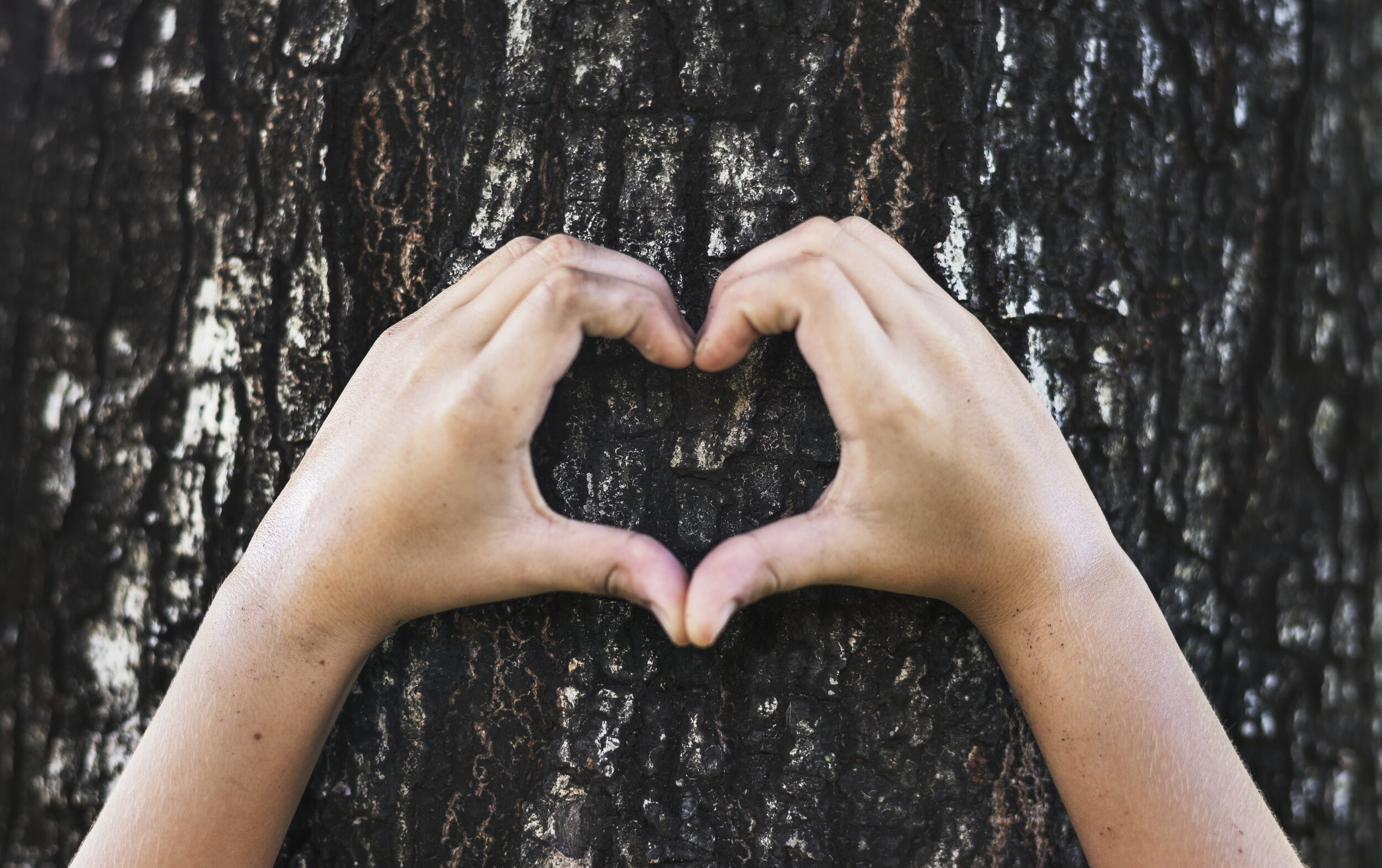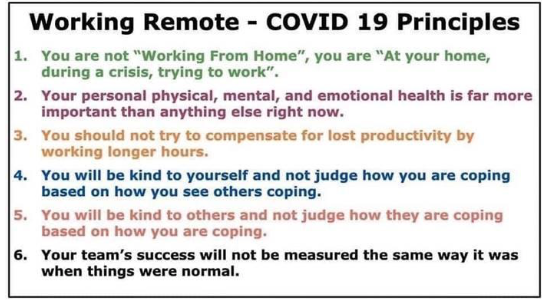The last few weeks have been a gigantic learning curve for everyone. Some people have been plunged into nothingness, others into overwhelming busyness and generally, the ability to concentrate seems to have vanished into thin air. With all this going on, for me, this week’s Earth Day 2020 couldn’t have come at a better time. It helped to create a little pause to regroup. Here’s where I’ve got to so far on some of the things I’d really love to see more of in our organisations in the future to give myself a bit of hope. What are you hoping for?
Image: Rawpixel
1. Compassion wins
The aim of most of the work I do is about helping to make people the focus when organisations consider introducing any change, rather than systems and processes (‘doing’ seems to be a comfort zone). It means that I try to come at challenges through a lens of empathy and compassion. Given that many organisations are trying to just keep going at the moment, maintaining that people focus and compassion and delivering against their values, even when things can be tricky, will be key.
I know this will continue to be a challenge, but I’ve been blown away by how well some organisation’s values have come to life during this crisis, with compassion at the heart. Some have really stood out.
One of these was global information analytics business, Elsevier. These principles were shared on LinkedIn (thanks for the permission to use here). Managers were encouraged to share this across the business.
Those of you who have read my posts before, you’ll know that I’m a big fan of Riverford,the UK organic farmers. As this crisis developed and they rejigged their website (among many other shifts), they kept customers updated about what was happening through their regular communication channels like their weekly emails, newsletters and Facebook groups, but in a way that didn’t feel overwhelming. It may feel like a small thing but in the first few weeks of this crisis when we were all concerned where our food was going to come from, this was a big help. They delivered on their values and didn’t deviate from a focus on serving their customers while keeping their teams safe. Food for thought (no pun intended).
One small but really noticeable point for me - I didn’t get a ‘message from the CEO’ in their business until much later, which was, incidentally a more personal video – unlike the multiple CEO emails I received from different supermarkets from the get-go, which although full of information, also felt slightly self-serving. Anyone else have good examples like these to share?
Finally, I probably don’t need to mention it, but when we talk about compassionate and empathetic leadership, most folk mention the New Zealand PM, Jacinda Ardern. There’s a reason why. It can be done.
2. Purpose and meaning
Over the past few weeks, I’ve heard time and time again from friends, colleagues and clients how important purpose has been for them - both as individuals and as collectives, whether that’s in communities or in organisations.
I’ve heard how important work has been in giving people a daily purpose and if you don’t have that work at the moment, how creating another purpose, for example volunteering in the community to help others, is doing the job (and it makes us feel good).
For leaders and teams, purpose and meaning has led to some brilliant, innovative thinking. I’ve seen many examples where teams have pulled together to deliver the seemingly impossible, drawing on new and often creative approaches and in many cases, not focused on turning a profit.
Wouldn’t it be great if we could harness this thinking to help better serve each other, our communities and our wider society in the future and not go back to whatever ‘business as usual’ was? Do we need a crisis to do this?
3. New ‘normal’ – or not
From several discussions this week in particular, thinking and discussion is definitely moving to what a new ‘normal’ might look like. Speculation about how people might react and behave when we go back to whatever that ‘normal’ might be, is starting and this, in turn, is leading to questions about what this means for those who are in work either in a physical workplace or working remotely (or not working at all).
This may mean discussions around returning to working in an office or working from home on a more permanent basis, the end of furloughing or potential redundancies, and how teams will reform, among many other topics. And, I know that some people who have been off the ‘hamster wheel’ of work might not want to go back on it. People will have real concerns and questions about all of this so those organisations that have, or can develop a culture where people feel safe to speak up in times of change, means they will feel safe to offer up great ideas and ask questions in the longer-term. Which can only be a good thing.
4. Mental health matters
There has been a wealth of media coverage on the challenges to mental health that this crisis is bringing and I’m so grateful that we’ve been talking about this topic for at least the last 18 months before it all began. That’s meant that we’re a little more familiar with some of the language around this and we’ve got some support – like Mental Health First Aid – already in place.
Managing our mental health will continue to be an issue for us all. Whether we’ve been made redundant, lost work or are snowed under with doing a full-time job and trying to juggle remote schooling at the same time, it’s a challenge. If organisations can either begin to provide or continue the support they’ve already provided in the future, it will make a massive difference.
5. Nature
I can’t tell you how many times in the last few weeks I’ve heard how bringing nature into your everyday life can help your physical and mental wellbeing. It’s brilliant. Even for those who can’t get outside at the moment, there are ways to get close to nature through photos or videos and social media is full of pictures taken by those who are able to get outside to exercise.
We’ve been able to hear birds singing more clearly, the skies seem bluer, and with fewer vehicles and distractions, we’ve been taking more notice of the nature that’s all around us. I’ve had so many discussions with folk who can’t imagine going back to the traffic and the related noise and stress that brings, never mind getting back on a train for a daily commute (that hamster wheel again).
If so many of us have recognised the importance of nature as a result of this crisis, how can we help organisations, as well as the rest of society, to keep giving it the respect it deserves, in the future?


